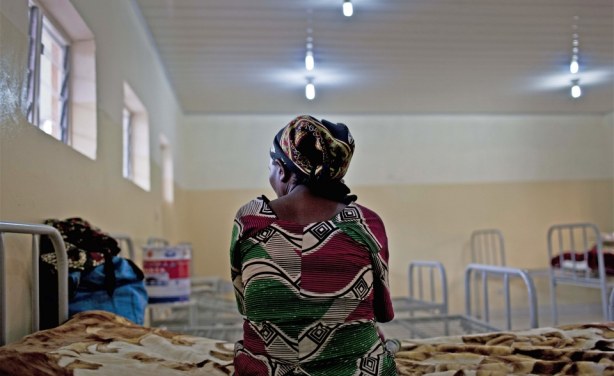The new president of the Central African Republic, Faustin-Archange Touadéra, should make security and justice for serious human rights abuses priorities for his government.
Touadéra, a former prime minister, is to take office on March 30, 2016, after winning a runoff election on February 14. His new administration will replace a transition government that has struggled to establish security and stop sectarian violence over the last two years.
“The new government needs to act quickly, with support from the international community, to protect civilians and stop ongoing abuses,” said Lewis Mudge, Africa researcher at Human Rights Watch. “Reducing tensions, working on justice and reconciliation, and protecting civilians from further attacks and violence should be the first priority.”
The Central African Republic has been in crisis since late 2012, when the mostly Muslim Seleka rebels ousted the government of François Bozizé and committed widespread abuses against civilians. In mid-2013, groups of Christians and animists, known as the anti-balaka militia, in turn carried out large scale reprisal attacks against Muslim civilians in Bangui and western parts of the country. Almost a million people have been forced to flee their homes in the ensuing violence.
Sectarian killings continue in the capital, Bangui, and several areas in the center of the country. In recent months, Seleka fighters, armed Muslims, and anti-balaka fighters have engaged in tit-for-tat reprisal attacks, sparking waves of killings around the Muslim enclave of Kilomètre 5 and in the town of Bambari.
Improving security requires disarming rebel factions and re-establishing the security forces. Both tasks will require the new government to rely heavily on the 12,000-member United Nations peacekeeping mission, MINUSCA.
There has been almost no progress on disarming rebel factions and armed groups in the country over the past two years. A disarmament program supported by the international community is still in early stages. Disarming and finding new occupations for combatants will be critical to ending attacks on civilians and restoring government control, Human Rights Watch said.
The national army, the police, and other security forces also need to be reformed. Any rearming of the army would need to take into account the serious human rights abuses some soldiers and their commanders may have committed during the violence in recent years. A vetting mechanism is essential to remove soldiers who have committed serious human rights abuses from the army’s ranks, including those in senior positions. Proper vetting should also ensure that new recruits do not bear responsibility for serious crimes.

